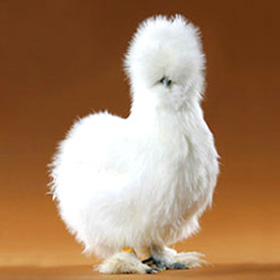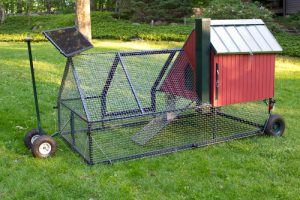By now, the world knows that I am obsessed with silkie chickens and other fancy breeds. They’re soft, fluffy and make great pets! But we need these chickens do a job, which unfortunately isn’t cuddling with me. I decided to look into how productive these fancy breeds are for the jobs we need them to do, fertilizing, pest control and laying.
I did some research and found out that when it comes to pooping and eating bugs, all chickens do a pretty good job at that. So the real question is, will fancy chickens be as productive laying eggs as a more standard breed? The simple (and sad) answer is no. A hybrid layer, such as a Golden Comet will lay around 280 eggs a year, which is ideal for our needs. A silkie chicken however, is less reliable with the amount of eggs they produce, (under 170 per year on average). They have seasons of high production then their rates begin to taper off in the colder months. Further, their eggs are much smaller than the conventional egg we are used to seeing in stores, making their eggs not as desirable. Most people actually just keep silkies as fun pets, and not so much for eggs.
So the sad truth is that if we want chickens that are going to provide us a lot of eggs, silkies are not the chicken for the job. Thus, the search continues for a cool looking chicken that produces the amount of eggs we need.


